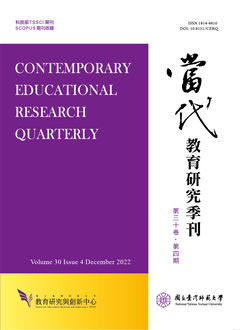

近年來先進國家已將中小學校園霸凌之防制,視為重要教育政策議題。但我國校園霸凌之相關研究,主要集中於霸凌行為成因、教職員責任及學校處理霸凌事件之程序,相對忽略校園霸凌防制早已超越學校管理層級。事實上,政府防制校園霸凌不僅需要強化學校教育人員的專業能力,更應重視利害關係人義務及外部機構參與等層面之政策建構。而英、美兩國自廿世紀九○年代初期起,即大力推動學校教育改革,強調校園安全與學習品質之重要,並視校園霸凌防制為中小學校園安全政策之優先內涵,其正向發展經驗值得我國借鏡。因此,本研究擬採用歷史比較法,透過教育法之觀點,針對英、美中小學防制校園霸凌政策之內涵進行分析,以供我國政府部門未來修正相關政策之參考。本研究之結論顯示:英、美校園霸凌防制政策需遵守行政法之原則,能夠回應校園安全之需求,重視對家長之課責,對學生及教師之基本人權亦能予以保障。
Anti-bullying in primary and secondary schools has been a vital issue in education policies of developed countries for years. The related researches in Taiwan were mainly focus on the causes of bullying behavior, the obligation of school faculty, and the procedures of dealing with it, comparatively ignoring the fact that school bullying has surpassed the level of school management. To tackle with it, the government should not only strengthen the profession of the school faculty, but also emphasize on the obligation of stakeholders and the involvement of external agencies. From 1990s, the UK and USA have been keen on school education reforms, highlighting the importance of campus safety and learning quality by prioritizing anti-bullying in campus safety policies; their positive experience is worthy for reference. Therefore, this study adopted the historical comparative method to analyse the components of British and American anti-bullying policies in the perspective of education law for the information of modifying related policies in the future. The results suggest the British and American anti-bullying policies follow the principles of administrative law, echo to the call of campus safety, highlight the accountability of parents, and safeguard the human rights of pupils and teachers. Accordingly, implications for related policies adjustments in Taiwan are proposed.

本著作係採用創用 CC 姓名標示-非商業性 3.0 台灣 授權條款授權.
本刊國立台灣師範大學教育研究與創新中心
106台北市和平東路一段162號 | 電話: 02-7749-3670 | E-mail: cerecerq@gmail.com
教創中心 | 師大 | 電子報 | 線上投審系統
本刊由國家科學及技術委員會人文社會科學研究中心補助經費
© 2014 CERI-NTNU
